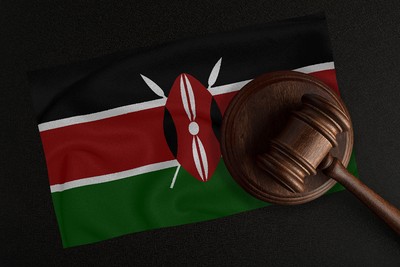 Banning gambling ads on TV is one thing, but banning the act of gambling in daytime hours completely?
Banning gambling ads on TV is one thing, but banning the act of gambling in daytime hours completely?
That’s the extreme lengths that the authorities in Kenya are considering in a bid to tackle the perceived problems with betting in the African country.
A bill – Nairobi City County Betting, Lotteries and Gaming (Amendment) Bill 2021 – has already been filed with the Nairobi County Assembly by elected minister Waithera Chege, and the central premise of the proposal is for gambling to be banned between the hours of 8am and 6pm.
Other items on the bill include a complete ban on gambling ads within a certain radius of casinos, betting shops and other establishments, as well as a new look at how mobile betting is regulated plus the introduction of cashless payments to minimise the amount of time spent on gambling premises’.
At the time of writing, the Nairobi City County Betting, Lotteries and Gaming Act is used in conjunction with the Betting, Lotteries and Gaming Act 2018 to regulate gambling in Kenya, but critics say that the legislation doesn’t go far enough to protect society.
That was a point strongly made by Chege, who in posting her amendment bill said:
“I have observed the operations of betting and gaming establishments in the county for a while now. I believe something must be done to curtail the hours spent in these establishments by our youth if we are to secure our future as a county.
“I shall be proposing that the county and National Licensing Board limit the operating hours of these establishments, so as to help protect productive hours among the citizenry and avoid wastage of time by some of our youth.”
The Nairobi County Assembly will now consider the motion and decide whether or not to ratify or dismiss it. Should they choose to pass it, a daytime ban on gambling would devastate the industry, see the country lose millions in tax revenue and potentially open the door to other forms of prohibition in the future.
Downward Spiral

Casino gaming and sports betting are both legal in Kenya, with liberal governance protecting the sector from heavy-handed regulation until now.
But there are signs that the government of Uhuru Kenyatta is starting to take a firmer stance on gambling, and in 2019 the country’s leading domestic betting site – SportPesa –left the Kenyan market over a debate about a rise in taxation.
However, there are concerns over the impact that liberal gambling policy is having on Kenyans. Locals now have access to smartphones and much faster internet, and that has driven a rise in mobile betting – in 2019, total cumulative bets exceeding £200 million a month were commonplace.
Figures leaked in May 2020 documented also revealed that Kenyan punters were placing up to 180 million bets per month between, with an average stake of £1.30. In a largely poor country of 35 million adults, those numbers are extraordinary.
There are 30 casinos in Kenya, with 22 found in the capital of Nairobi, while the fast-and-loose licensing requirements mean that the online casino sector continues to thrive in the country too – the value of the gaming market is set to more than double between 2018 and 2023.
